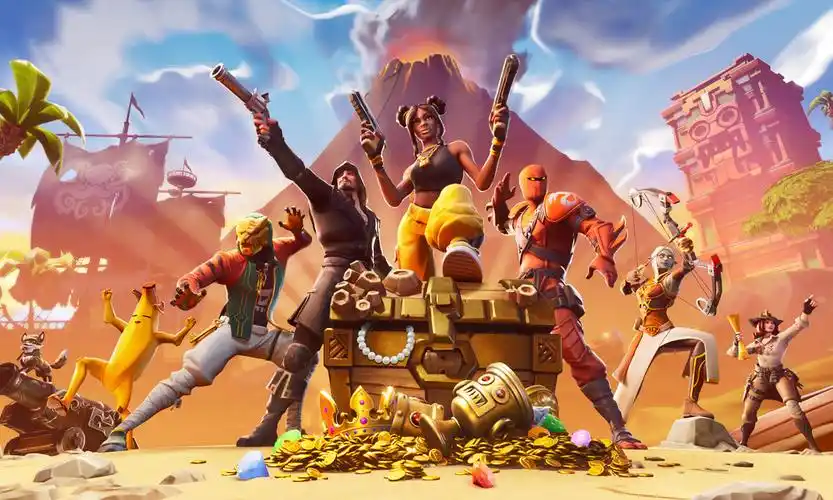An In-Depth Analysis of Current Deep Game News: Trends, Innovations, and Industry Shifts
The video game industry is in a perpetual state of evolution, driven by technological breakthroughs, shifting consumer behaviors, and bold creative visions. To understand its current trajectory, one must look beyond headline-grabbing releases and examine the deeper undercurrents shaping the future of interactive entertainment. This analysis delves into the most significant developments, from the maturation of generative AI to the strategic pivots of major publishers and the burgeoning potential of new hardware.
The Generative AI Revolution: Beyond Novelty to Integration
The most profound shift occurring beneath the surface of game development is the rapid integration of generative AI. Initially met with fascination and trepidation, AI tools are moving from experimental novelties to core components of the development pipeline. News from leading engine providers like Unity and Unreal, as well as from AI-specific firms, points to a future where procedural generation is exponentially more dynamic.
For instance, recent advancements in AI-powered non-playable character (NPC) behavior are poised to dismantle traditional storytelling limitations. Companies like Inworld AI are demoing platforms where NPCs possess deeply simulated personalities, memories, and goals, allowing them to engage in unscripted, context-aware conversations with players. This moves us away from branching dialogue trees and towards truly emergent narratives, where no two playthroughs are identical. The implications for role-playing games and open-world titles are staggering, promising worlds that feel genuinely reactive and alive.
However, this revolution is not without its controversies. Deep game news outlets are actively reporting on the heated debates within developer communities. Concerns about job displacement for writers and artists, the ethical sourcing of training data, and the potential for AI to homogenize creative expression are critical topics. The industry is grappling with establishing ethical frameworks and unions are pushing for protections, ensuring that AI serves as a tool to augment human creativity rather than replace it.

The Live-Service Reckoning and the Single-Player Resurgence
The market's relationship with live-service games is undergoing a significant correction. After years of every major publisher chasing the recurring revenue of titles like Fortnite and Destiny 2, a string of high-profile failures has sent a clear message. Recent cancellations of planned live-service projects from Square Enix and Warner Bros. indicate a strategic pullback. The market is simply too saturated, and the cost of development and user acquisition too high, to support anything but the most polished and uniquely engaging service-based experiences.
Conversely, this has led to a powerful resurgence in the value of premium, narrative-driven single-player games. The astounding success of Baldur’s Gate 3 and Elden Ring demonstrated that there is a massive, hungry audience for deep, complex, and complete experiences without microtransactions. This success has forced publishers to re-evaluate their portfolios. Deep analysis of earnings calls reveals a renewed commitment to "premium" single-player titles, with studios like NetherRealm (Mortal Kombat) and Insomniac (Spider-Man) being celebrated for their profitability and critical acclaim on this model. The lesson is clear: a well-crafted, respectful single-player experience can be just as financially viable as a live-service juggernaut.
The Hardware Horizon: More Than Just Power
While the PlayStation 5 and Xbox Series X/S are in their mid-life cycle, the hardware news cycle is dominated by the emerging spectrum of devices that fill the gaps between platforms.
The Steam Deck and PC Handhelds: Valve's Steam Deck has catalyzed a new category of gaming hardware. Devices like the ASUS ROG Ally and Lenovo Legion Go are refining the concept of portable PC gaming. The deep news here isn't just the specs; it's the software integration. Valve's relentless optimization of Proton (a compatibility layer for Windows games on Linux) is silently breaking down the barriers between operating systems, making a vast library of games portable. This shift empowers consumers and challenges the closed ecosystems of traditional consoles.
The "Switch 2" Question: The perpetual rumor mill surrounding Nintendo's next console is a constant feature of game news. Beyond mere speculation, analysts are examining the potential impact of a more powerful Nintendo device. Could it support enhanced third-party ports from current-generation engines? How would Nintendo's unique design philosophy integrate with modern power? The answer will significantly influence the market balance, potentially pulling audiences away from the traditional power struggle between Sony and Microsoft.
Acquisitions and Consolidation: Reshaping the Landscape
The industry's consolidation continues at a staggering pace. Microsoft's acquisition of Activision Blizzard is the most monumental, but it is far from alone. Take-Two Interactive's purchase of Zynga and Savvy Games Group's investments underscore a strategy of portfolio diversification across mobile, console, and PC.
The deep analysis of this trend reveals a growing concern about the concentration of iconic franchises and talent under a few corporate umbrellas. While it promises financial stability for some studios, it raises questions about creative risk-taking and the potential for homogenization. The health of the industry may increasingly depend on vibrant independent scenes and the success of mid-tier publishers like Focus Entertainment and Private Division in nurturing innovative AA projects.
Conclusion: A Industry in Reflexive Transformation
The current state of the game industry is one of reflexive transformation. It is an ecosystem responding to its own excesses (live-service saturation), embracing external technological shocks (Generative AI), and expanding the very definition of a gaming platform (handheld PCs). For the astute observer, the most compelling stories are not just which game topped the sales charts in a given month, but the underlying structural shifts that will determine what games are made, how they are made, and who gets to play them in the years to come. The future is being written not only in code and design documents but also in boardrooms, ethical debates, and the evolving expectations of a global audience.


















